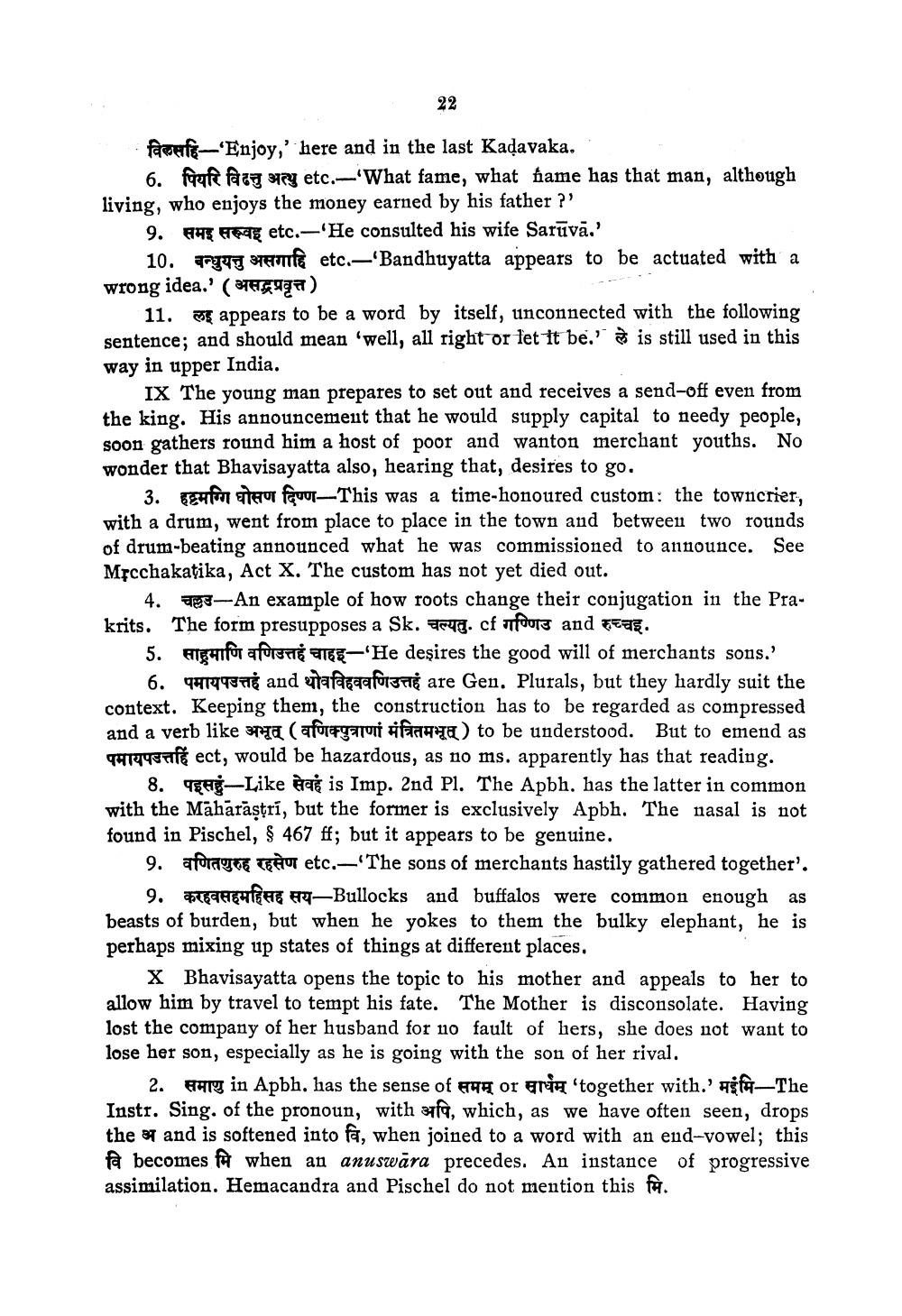________________
22
SU.
facef-'Enjoy,' here and in the last Kadavaka.
6. for fun 7 etc.-'What fame, what fame has that man, although living, who enjoys the money earned by his father ?'
9. Fag etc.-'He consulted his wife Saruvā.'
10. IT Ante etc.- Bandhuyatta appears to be actuated with a wrong idea.' (3765qT)
11. E appears to be a word by itself, unconnected with the following sentence; and should mean 'well, all right or let it be.' is still used in this way in upper India.
IX The young man prepares to set out and receives a send-off even from the king. His announcement that he would supply capital to needy people, soon gathers round him a host of poor and wanton merchant youths. No wonder that Bhavisayatta also, hearing that, desires to go.
3. En STFUT GU-This was a time-honoured custom: the towncrier, with a drum, went from place to place in the town and between two rounds of drum-beating announced what he was commissioned to announce. See Mfcchakaţika, Act X. The custom has not yet died out.
4. 295–An example of how roots change their conjugation in the Prakrits. The form presupposes ask. चल्यतु. cf गण्णिउ and रुच्चइ.
5. FE for FUTETTE ANGE-He desires the good will of merchants sons.'
6. 94194T and afarqafute are Gen. Plurals, but they hardly suit the context. Keeping them, the construction has to be regarded as compressed and a verb like अभूत् (वणिक्पुत्राणां मंत्रितमभूत्) to be understood. But to emend as TATAYSaile ect, would be hazardous, as no ms, apparently has that reading.
8. TE -Like fat is Imp. 2nd Pl. The Apbh. has the latter in common with the Mahārāştrí, but the former is exclusively Apbh. The nasal is not found in Pischel, $ 467 ff; but it appears to be genuine.
9. aforay E TEÀCT etc. The sons of merchants hastily gathered together'.
9. करहवसहमहिसह सय-Bullocks and buffalos were common enough as beasts of burden, but when he yokes to them the bulky elephant, he is perhaps mixing up states of things at different places,
X Bhavisayatta opens the topic to his mother and appeals to her to allow him by travel to tempt his fate. The Mother is disconsolate. Having lost the company of her husband for 10 fault of hers, she does not want to lose her son, especially as he is going with the son of her rival.
2. समाणु in Apbh. has the sense of समम् or सार्धम् 'together with.' मइंमि-The Instr. Sing. of the pronoun, with a fa, which, as we have often seen, drops the 27 and is softened into fa, when joined to a word with an end-vowel; this f becomes when an anuswāra precedes. An instance of progressive assimilation. Hemacandra and Pischel do not mention this f.




